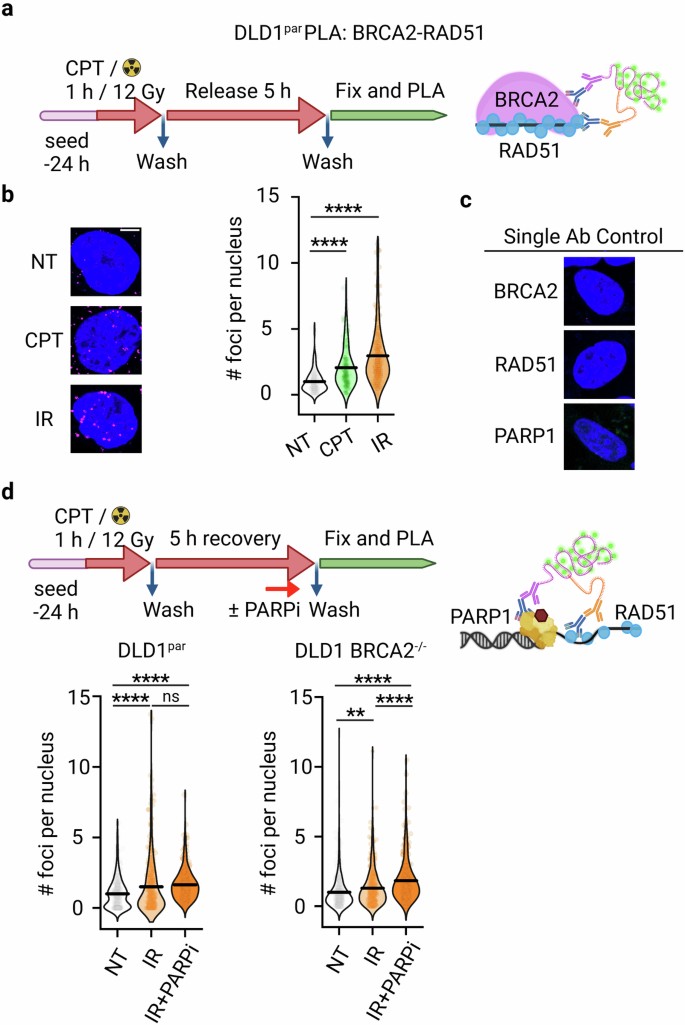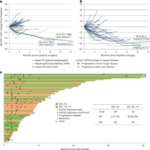2025-03-26 イェール大学
- https://news.yale.edu/2025/03/26/how-inherited-cancer-risks-can-be-used-effective-personalized-therapy
- https://www.nature.com/articles/s41586-025-08749-x
BRCA2はPARPiによるPARP1の保持を阻害し、RAD51フィラメントを保護する BRCA2 prevents PARPi-mediated PARP1 retention to protect RAD51 filaments
Sudipta Lahiri,George Hamilton,Gemma Moore,Liana Goehring,Tony T. Huang,Ryan B. Jensen & Eli Rothenberg
Nature Published:26 March 2025
DOI:https://doi.org/10.1038/s41586-025-08749-x

Abstract
The tumour-suppressor protein BRCA2 has a central role in homology-directed DNA repair by enhancing the formation of RAD51 filaments on resected single-stranded DNA generated at double-stranded DNA breaks and stimulating RAD51 activity. Individuals with BRCA2 mutations are predisposed to cancer; however, BRCA2-deficient tumours are often responsive to targeted therapy with PARP inhibitors (PARPi). The mechanism by which BRCA2 deficiency renders cells sensitive to PARPi but with minimal toxicity in cells heterozygous for BRCA2 mutations remains unclear. Here we identify a previously unknown role of BRCA2 that is directly linked to the effect of PARP1 inhibition. Using biochemical and single-molecule approaches, we demonstrate that PARPi-mediated PARP1 retention on a resected DNA substrate interferes with RAD51 filament stability and impairs RAD51-mediated DNA strand exchange. Full-length BRCA2 protects RAD51 filaments and counteracts the instability conferred by PARPi-mediated retention by preventing the binding of PARP1 to DNA. Extending these findings to a cellular context, we use quantitative single-molecule localization microscopy to show that BRCA2 prevents PARPi-induced PARP1 retention at homologous-recombination repair sites. By contrast, BRCA2-deficient cells exhibit increased PARP1 retention at these lesions in response to PARPi. These results provide mechanistic insights into the role of BRCA2 in maintaining RAD51 stability and protecting homologous-recombination repair sites by mitigating PARPi-mediated PARP1 retention.


